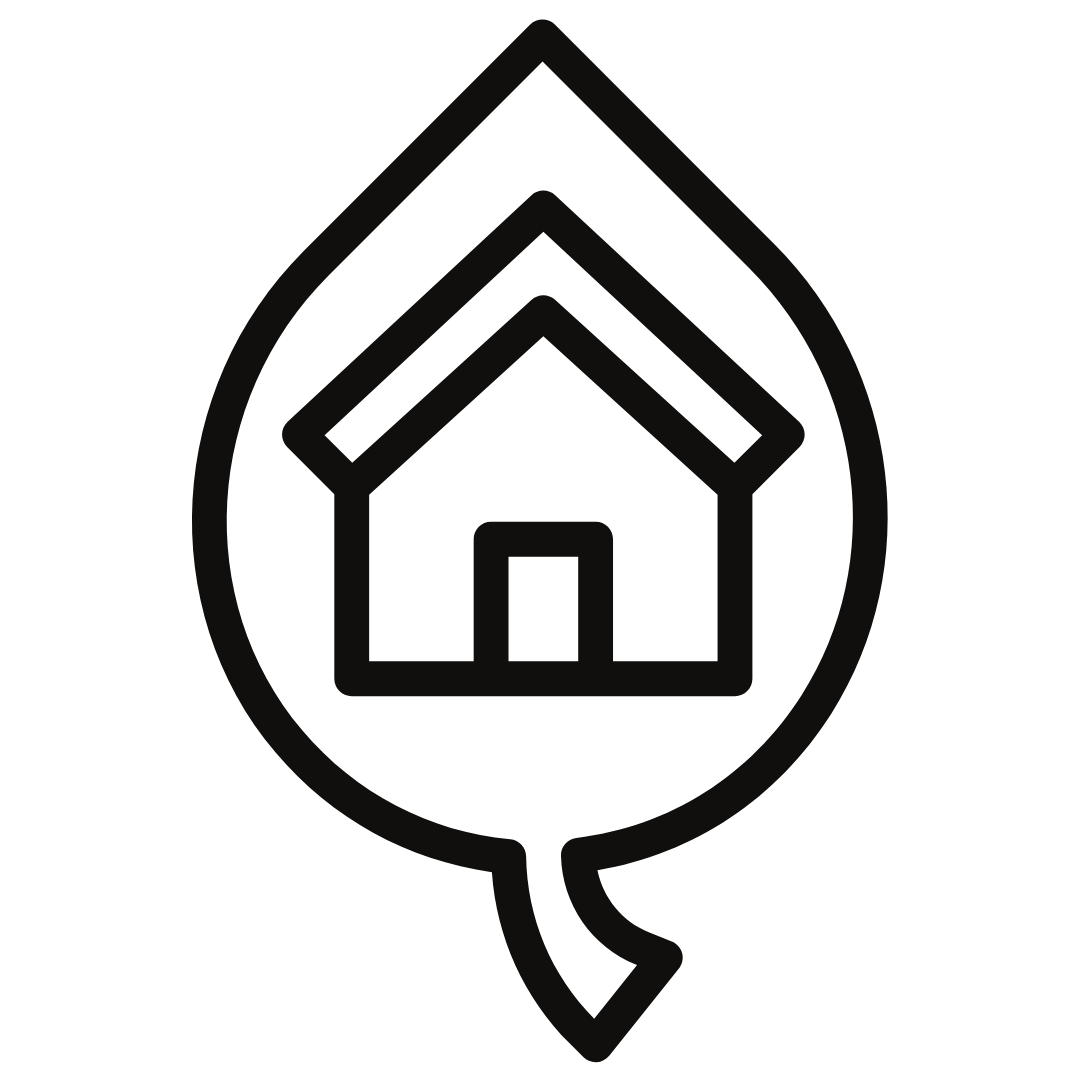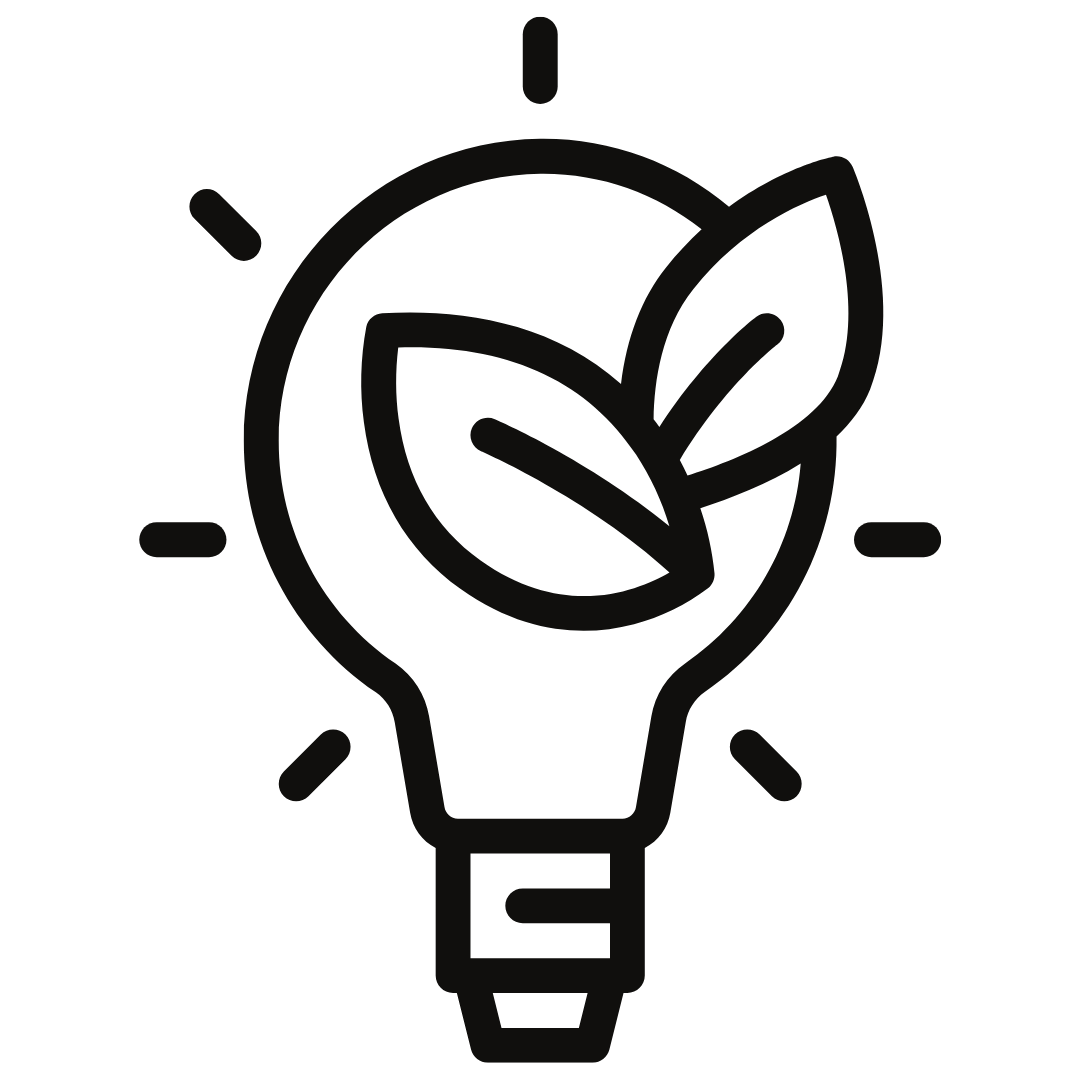
Water & Sewer
Water & Sewer Field Operations
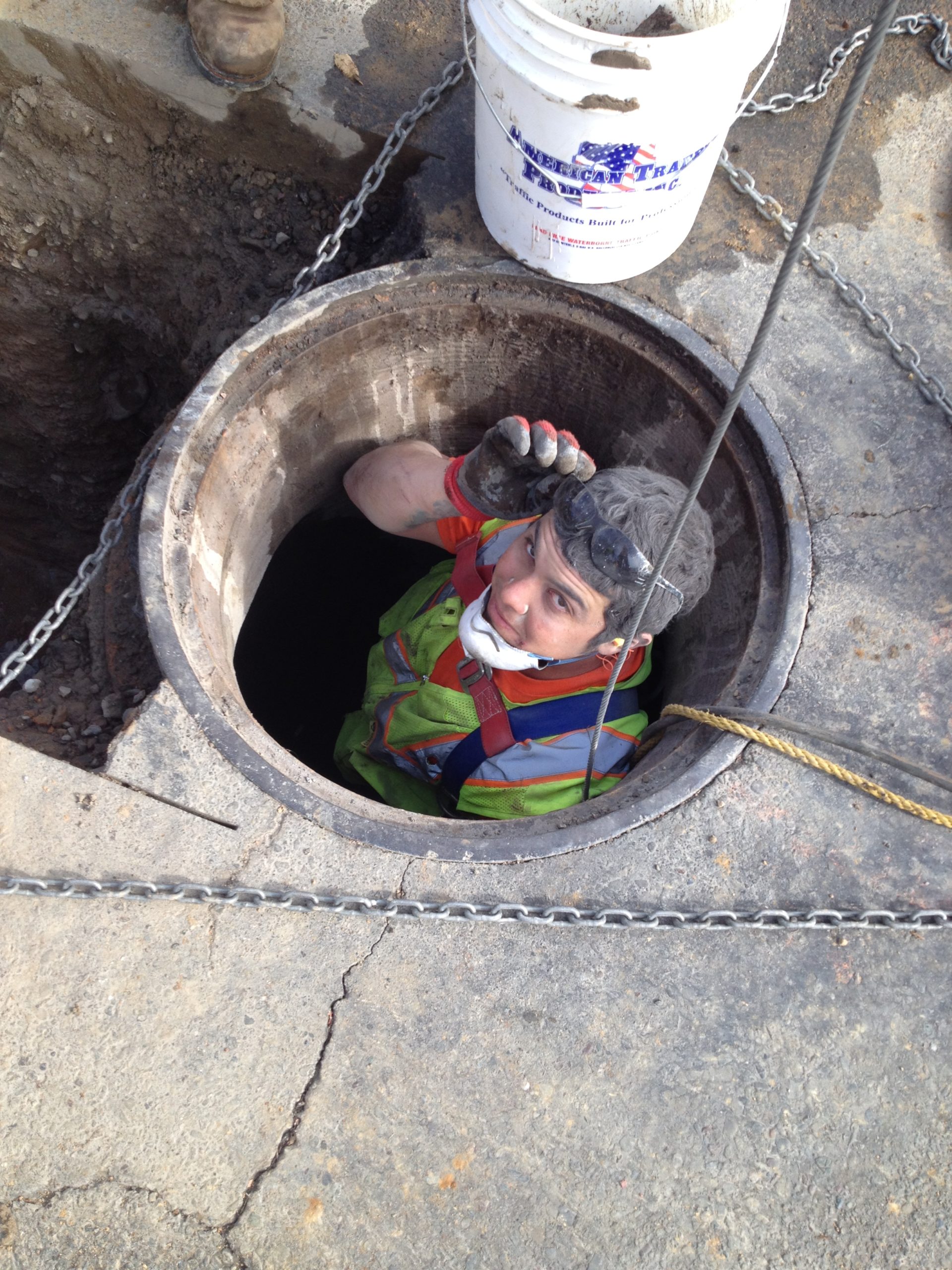 Water and Sewer personnel are responsible for the operation and maintenance of the City of Ukiah’s water distribution system and the City’s sewer collection system that includes the Ukiah Valley Sanitation District. Crews respond to service calls for water mains, water services, fire hydrants, and water valves. They also respond to blockage problems concerning the sewer collection system and house service laterals from the main to the sewer line. Collection system facilities are serviced on a routine basis or as necessary.
Water and Sewer personnel are responsible for the operation and maintenance of the City of Ukiah’s water distribution system and the City’s sewer collection system that includes the Ukiah Valley Sanitation District. Crews respond to service calls for water mains, water services, fire hydrants, and water valves. They also respond to blockage problems concerning the sewer collection system and house service laterals from the main to the sewer line. Collection system facilities are serviced on a routine basis or as necessary. Water Utility
The Water Treatment Department is dedicated to providing a safe and reliable supply of high-quality drinking water for the citizens of Ukiah and their guests. Our highly professional and competent staff monitors demand within the system and matches the output of the sources to meet the demand. On a daily basis, staff monitors disinfectant levels and flow rates. On a weekly basis, they collect samples to be analyzed for microbial contamination, color and odor. On a monthly schedule, they calibrate the instruments that display and record the various parameters that indicate primary water quality. Throughout the year our staff collects water samples to be analyzed for a variety of contaminants. The results of this work ensure the citizens of Ukiah that the quality is at a maximum, better than those required by both the United States Environmental Protection (USEPA) and the State Water Resources Control Board Division of Drinking Water (DDW).
Contact Us
Main Office: (707) 467-5790
After Hours Emergencies: (707) 463-6262
Hours
Monday – Thursday 7:00 am to 4:30 pm
Fridays 7:00 am to 3:30 pm
Report Leaks and Emergencies
- Nick Kirby
- nkirby@cityofukiah.com
- (707) 467-5790
Address – 300 Seminary Avenue Ukiah
Phone – (707) 467-2842
Fax – (707) 467-2841
Contact – Michelle Wagenet
Water Treatment Information
- Pre-1914 Appropriative Right to divert approximately 2,000 acre-feet annually from the Russian River
- 1954 Appropriative Right to divert approximately 14,480 acre-feet annually from the Russian River
- Capability to divert approximately 4,000 acre-feet of groundwater in the Ukiah subbasin
- Contract with RRFC for 800 acre-feet annually
Maintenance and Operations
The highly skilled staff of water operations maintain the water distribution system to ensure delivery of clean and safe drinking water with a minimum or no interruption to our customers. Staff monitor demand within the system and matches the output of the sources to meet the demand. A Supervisory Control and Data Acquisition (SCADA) system allows staff to effectively operate and troubleshoot the City’s water distribution system by monitoring all pumps, pump stations, and reservoir parameters remotely.Water Quality and Other Related Reports
Recycled Water
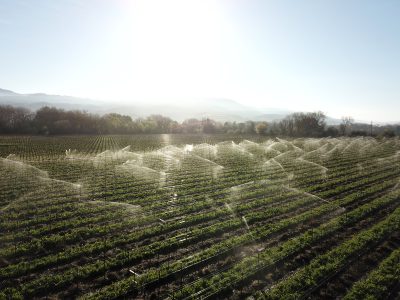 The Recycled Water System includes nearly eight miles of pipeline, a 66-million-gallon water storage reservoir, upgraded treatment facilities and improved water and wastewater infrastructure on Oak Manor Drive. This allows the City to serve approximately 325 million gallons of water to farmers, parks, and schools.
The Recycled Water System includes nearly eight miles of pipeline, a 66-million-gallon water storage reservoir, upgraded treatment facilities and improved water and wastewater infrastructure on Oak Manor Drive. This allows the City to serve approximately 325 million gallons of water to farmers, parks, and schools.
As of 2020, the City has completed the first three phases of this project which provide an additional 1,000-acre feet per year of water supply to the Ukiah Valley. Phase 4, the final phase, is scheduled for construction in 2021 and will provide an additional 400-acre feet per year.
The recycled water project known as the “purple pipe project” provides numerous benefits to our community including promoting a vibrant agricultural region, reducing diversions from the Russian River, assisting in conformation to State conservation objectives and improving environmental habitat by providing an alternative source for frost protection.
Wastewater
Water that goes down your shower, toilet and sink drain enters our wastewater collection system. Over 93 miles of underground pipes bring this wastewater from homes, businesses, and industry located within the City of Ukiah to the wastewater treatment plant.
The majority of our wastewater runs by gravity through a series of wastewater pipes to the Plant. The remainder of the wastewater, due to elevations that will not allow for gravity flow, must be lifted (pumped) to a location through force (pressurized) mains in the wastewater system that will allow the wastewater to return to a gravity wastewater main.
The Waste Water Treatment Plant underwent a three year, $56.5M improvement project that was completed in 2009. This plant will insure continued compliance with permit requirements and meet future demand growth.
Maintenance and Operations
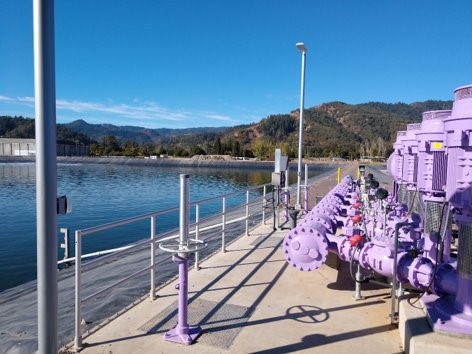 The recycled water and wastewater system operators are responsible for nearly 8 miles of recycled water, 93 miles of sewer pipe, and 3 wastewater lift stations. Maintenance includes testing, cleaning, leak repair, operational emergency response, general construction, and more.
The recycled water and wastewater system operators are responsible for nearly 8 miles of recycled water, 93 miles of sewer pipe, and 3 wastewater lift stations. Maintenance includes testing, cleaning, leak repair, operational emergency response, general construction, and more.
STORM DRAINS CONNECT STREETS TO CREEKS
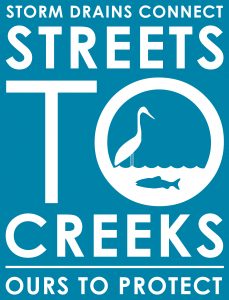 It’s simple really, but a fact that most of our community is either unaware of or hasn’t thought of. The Storm Drains you see in our streets, go directly into our creeks and then flow into the Russian River.
It’s simple really, but a fact that most of our community is either unaware of or hasn’t thought of. The Storm Drains you see in our streets, go directly into our creeks and then flow into the Russian River.
If you take a moment to think that through you’ll understand the implications. That small piece of trash that has been sitting in the gutter, the remaining fertilizer lingering in the flower beds, the bacteria and pathogens from forgotten pet waste, with the addition of water all of these contaminants will travel directly into our creeks. The good news is there’s a lot we can do, with some simple changes, that will have great impact.
Responding responsibly to ensure a stable and affordable water supply
With historically low rainfall and the very real prospect of a prolonged drought on the horizon, the City is responding responsibly to ensure ongoing reliability and affordability of our municipal water resources. By virtue of our proactive investments in a diversified water supply the City is well positioned to maintain reliable water service during these dry times.
Managing, delivering, and planning of our region’s water supply
As the largest municipal supplier of water in the Valley, Ukiah is leading by example in taking the necessary steps to achieve and maintain an affordable and sustainable water supply.
We have invested in modernized water infrastructure to enhance sustainability and reduce diversions off the Russian River, while still maintaining service for community needs. Ukiah’s state-of-the-art water recycling plant allows the City to serve approximately 325 million gallons of water to farmers, parks and schools and reduces our reliance on the Russian River by at least 30%. We are utilizing our recycled water capability to serve Oak Manor Park, Riverside Park, and the Ukiah Sports Complex. Relying on recycled water helps protect the environment and reduces the stress on shared regional resources.
In addition, our investments in modernizing our groundwater wells have also allowed us to further reduce our reliance on the Russian River and Mendocino Lake.
How you can help us conserve water and keep Ukiah green
We must also do our part as residents. When we all make small adjustments, we can make a huge difference. Adjustments you can make include:
- Install water-saving fixtures, such as shower heads and kitchen faucets
- Take shorter showers
- Water your lawn and garden only when necessary
- Fill containers of recycled water for outdoor use for free at the water recycling plant
Even though a prolonged drought may be on the horizon, Ukiah has taken steps to prepare. If we all respond responsibly, we will be okay.
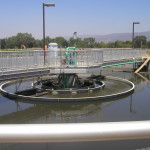 The Waste Water Treatment Plant, operational since 1958, serves the City of Ukiah and the Ukiah Valley Sanitation District. It has a current treatment capacity of 2.8 million gallons per day (MGD) of dry weather flow and 20 MGD of peak wet weather flow. Primary treatment removes floating material, oils and greases, sand and silt and organic solids heavy enough to settle in water. Secondary treatment biologically removes most of the suspended and dissolved organic material.
The Waste Water Treatment Plant, operational since 1958, serves the City of Ukiah and the Ukiah Valley Sanitation District. It has a current treatment capacity of 2.8 million gallons per day (MGD) of dry weather flow and 20 MGD of peak wet weather flow. Primary treatment removes floating material, oils and greases, sand and silt and organic solids heavy enough to settle in water. Secondary treatment biologically removes most of the suspended and dissolved organic material.
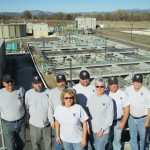 Treatment steps are grit removal, primary sedimentation, secondary treatment (trickling filters), secondary sedimentation, final clarification (advanced waste water treatment facility), sludge digestion (digesters), disinfection, dechlorination, and effluent discharge to the percolation ponds.
The Waste Water Treatment Plant underwent a three year, $56.5M improvement project that was completed in 2009. This plant will insure continued compliance with permit requirements and meet future demand growth.
Treatment steps are grit removal, primary sedimentation, secondary treatment (trickling filters), secondary sedimentation, final clarification (advanced waste water treatment facility), sludge digestion (digesters), disinfection, dechlorination, and effluent discharge to the percolation ponds.
The Waste Water Treatment Plant underwent a three year, $56.5M improvement project that was completed in 2009. This plant will insure continued compliance with permit requirements and meet future demand growth.
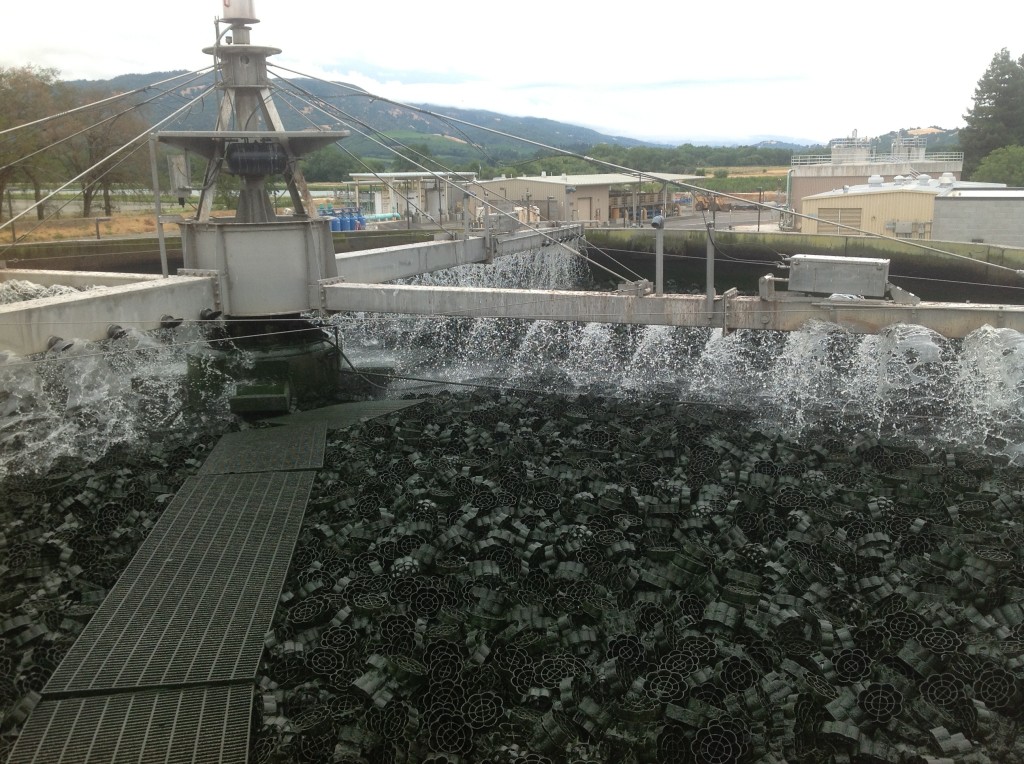
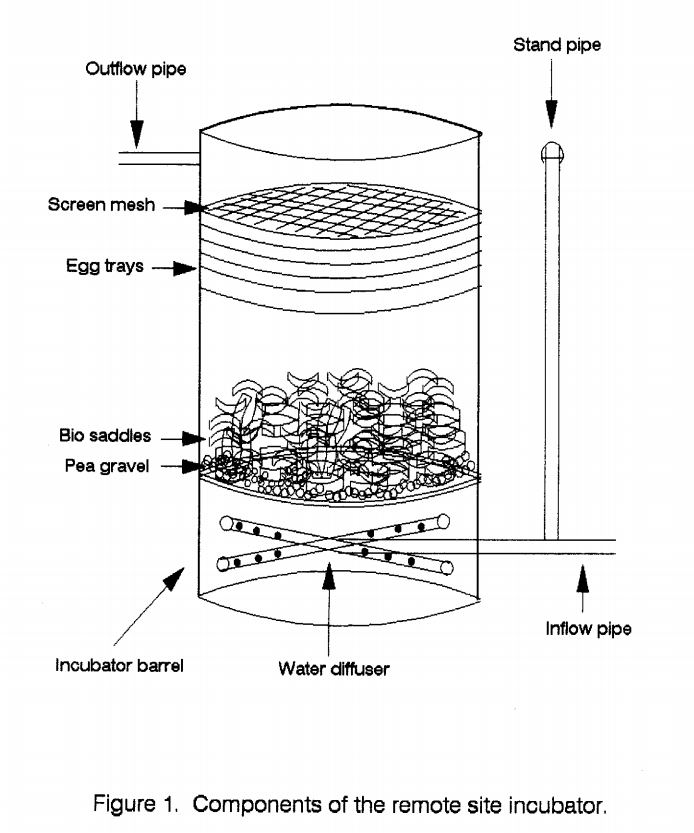 In the Spring of 2017 the City of Ukiah partnered with the National Marine Fisheries Service (NMFS) to test a Remote Spawning Incubator (RSI) at the site of the historic Gibson Creek Hatchery. These systems are relatively small and easy to implement in tributary streams. They use the stream’s natural water flow to provide a protected, clean water environment where the fish can develop in preparation for exiting into the wild. The systems have been used for many years in Washington and Oregon to help bolster fish populations; however, California has been slow to adopt the systems.
For the Gibson Creek installation a spring box was installed upstream and connected to a secondary filter barrel which fed into an incubator barrel housing the 6300+ steelhead trout eggs from Warm Springs Hatchery in Geyserville. Once hatched the fry developed in the incubator until they were large enough to swim to the top and exit through the outflow pipe into Gibson Creek.
In the Spring of 2017 the City of Ukiah partnered with the National Marine Fisheries Service (NMFS) to test a Remote Spawning Incubator (RSI) at the site of the historic Gibson Creek Hatchery. These systems are relatively small and easy to implement in tributary streams. They use the stream’s natural water flow to provide a protected, clean water environment where the fish can develop in preparation for exiting into the wild. The systems have been used for many years in Washington and Oregon to help bolster fish populations; however, California has been slow to adopt the systems.
For the Gibson Creek installation a spring box was installed upstream and connected to a secondary filter barrel which fed into an incubator barrel housing the 6300+ steelhead trout eggs from Warm Springs Hatchery in Geyserville. Once hatched the fry developed in the incubator until they were large enough to swim to the top and exit through the outflow pipe into Gibson Creek. Gibson Creek, Ukiah, CA RSI Project Video
Slides from the Video
Storm Water Management
- About
- Management Plan
- Prevent Storm Water Pollution
- A Fair Warning
The City of Ukiah has adopted the Low Impact Development (LID) Manual that is utilized by Santa Rosa and Sonoma County (see City of Ukiah Resolution No. 2014-27). This Manual provides the technical design guidelines for development projects in the implementation of permanent storm water quality features.
For more information or to report issues with downloading the documents, please contact Andrew Stricklin, Senior Engineer via email at astricklin@cityofukiah.com or call 707-463-6297.
City of Santa Rosa/County of Sonoma LID Manual, adopted by the City of Ukiah
As storm water flows over driveways, lawns, and sidewalks, it picks up debris, chemicals, dirt, and other pollutants. Storm water can flow into a storm sewer system or directly to a lake, stream, river, wetland, or coastal water. Anything that enters a storm sewer system is discharged untreated into the water bodies we use for swimming, fishing, and providing drinking water. Polluted runoff is the nation’s greatest threat to clean water.
Since the passage of the Federal Water Pollution Control Act, the quality of our Nation’s waters has improved dramatically. Despite this progress, however, degraded water bodies still exist. According to the 1996 National Water Quality Inventory, approximately 40 percent of surveyed U.S. water bodies are still impaired by pollution and do not meet water quality standards. A leading source of this impairment is polluted storm water runoff. In fact, according to the Inventory, 13 percent of impaired rivers, 21 percent of impaired lake acres, and 45 percent of impaired estuaries are affected by urban/suburban storm water runoff. Six percent of impaired rivers, 11 percent of impaired lake acres, and 11 percent of impaired estuaries are affected by construction site discharges.
The City of Ukiah recognizes that contaminants and impurities in storm water runoff are a major threat to the quality of our environment and our water supply. A five year management plan has been drafted and is in the process of being implemented. Posted below are the six areas in which the city is taking measures to reduce and protect against pollutants that storm water runoff carries to our creeks and rivers.
Preventable Causes of Storm Water Pollution
 Pet waste can be a major source of bacteria and excess nutrients in the water. When walking your pet, remember to pick up the waste and dispose of it properly. Flushing pet waste is the best disposal method as it can be treated at the local wastewater treatment plant. Leaving pet waste on the ground increases public health risks by allowing harmful bacteria and nutrients to wash into the storm drain and eventually into local water bodies.
Pet waste can be a major source of bacteria and excess nutrients in the water. When walking your pet, remember to pick up the waste and dispose of it properly. Flushing pet waste is the best disposal method as it can be treated at the local wastewater treatment plant. Leaving pet waste on the ground increases public health risks by allowing harmful bacteria and nutrients to wash into the storm drain and eventually into local water bodies.
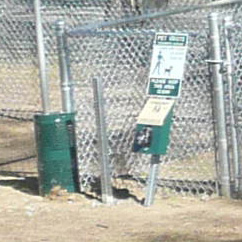 We have conveniently placed dispensers containing disposable plastic bags and trash receptacles in all the parks in town so that cleaning up after your pet is quick and convenient. Please take the time to utilize this service so that our parks stay clean and our water stays clear and healthy.
We have conveniently placed dispensers containing disposable plastic bags and trash receptacles in all the parks in town so that cleaning up after your pet is quick and convenient. Please take the time to utilize this service so that our parks stay clean and our water stays clear and healthy. As stormwater flows over driveways, lawns, and sidewalks, it picks up debris, chemicals, dirt, and other pollutants. Stormwater can flow into a storm drain system or directly to a creek, river, lake, wetland or coastal water. Anything that enters a storm drain system is discharged untreated into the waterbodies we use for swimming, fishing and providing drinking water. Polluted runoff is the nation’s greatest threat to clean water.
By practicing healthy household habits, homeowners can keep common pollutants like pesticides, pet waste, grass clippings, and automotive fluids off the ground and out of stormwater. Adopt these healthy household habits and help protect creek, river, wetland or coastal waters. Remember to share the habits with your neighbors!
As stormwater flows over driveways, lawns, and sidewalks, it picks up debris, chemicals, dirt, and other pollutants. Stormwater can flow into a storm drain system or directly to a creek, river, lake, wetland or coastal water. Anything that enters a storm drain system is discharged untreated into the waterbodies we use for swimming, fishing and providing drinking water. Polluted runoff is the nation’s greatest threat to clean water.
By practicing healthy household habits, homeowners can keep common pollutants like pesticides, pet waste, grass clippings, and automotive fluids off the ground and out of stormwater. Adopt these healthy household habits and help protect creek, river, wetland or coastal waters. Remember to share the habits with your neighbors!
- Use pesticides and fertilizers sparingly. When use is necessary, use these chemicals in the recommended amounts. Avoid application if the forecast calls for rain; otherwise, chemicals will be washed into your local creek.
- Select native plants and grasses that are drought- and pest-resistant. Native plants require less water, fertilizer, and pesticides.
- Sweep up yard debris, rather than hosing down driveways and sidewalks. Compost or recycle yard waste when possible
- Don’t over-water your lawn. Water during the cool times of the day, and don’t let water run off into the storm drains.
- Cover piles of dirt and mulch being used in landscaping projects to prevent these pollutants from blowing or washing off your yard and into the local waterbodies. Vegetate bare spots in your yard to prevent soil erosion.
Home Repair and Improvement
- Before beginning an outdoor project, locate the nearest storm drains and protect them from debris and other materials.
- Sweep up and properly dispose of construction debris such as concrete and mortar.
- Use hazardous substances like paints, solvents, and cleaners in the smallest amounts possible, and follow the directions on the label. Clean up spills immediately, and dispose of the waste safely. Store substances properly to avoid leaks and spills.
- Purchase and use nontoxic, biodegradable, recycled, and recyclable products whenever possible.
- Clean paint brushes in a sink, not outdoors. Filter and reuse paint thinner when using oil-based paints. Properly dispose of excess paints through the hazmobile, or donate unused paint to local organizations.
- Reduce the amount of paved area and increase the amount of vegetated area in your yard. Use native plants in your landscaping to reduce the need for watering during dry periods. Consider directing downspouts away from paved surfaces and onto lawns. Consider other measures to increase infiltration and reduce polluted runoff.
More Information
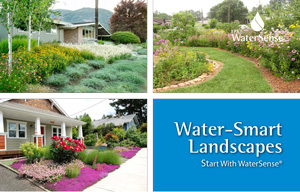 The EPA has released a homeowner’s guide to healthy habits for clean water:
The Solution to Stormwater Pollution!
The EPA has released a homeowner’s guide to healthy habits for clean water:
The Solution to Stormwater Pollution!- The EPA has released a pamphlet detailing the best methods for using water-efficient landscaping. It contains background, instructions and examples on this environmentally friendly way to landscape your home. Water-Smart Landscapes, Start with WaterSense
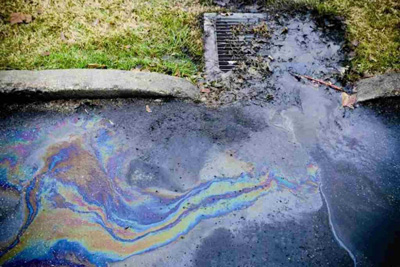 Washing your car and degreasing auto parts at home can send detergents and other contaminants through the storm drain system. Dumping automotive fluids into storm drains has the same result as dumping the materials directly into a waterbody. Fortunately, there are simple measures that you can take to help reduce your automobile’s negative effect on stormwater runoff.
Avoid washing your car, truck or boat on pavement as detergents are easily picked up by rainwater and washed down the nearest drain. Washing your car in your yard can help prevent runoff. Even better, you can take your car to a commercial car wash, where runoff can be easily controlled, without the detergents washing into the nearest waterbody.
Automobiles contain many fluids that are hazardous to local rivers and streams. The Mendocino Solid Waste Management Authority (of which the City of Ukiah is a member agency) provides a free hazmobile service which provides a listing of disposal facilities which will accept automobile related wastes such as oil, antifreeze, coolant and other toxic fluids. Also be sure to check your car for leaks, and clean up spills right away with an absorbent material like kitty litter or sand, before they can be washed down the nearest drain.
Washing your car and degreasing auto parts at home can send detergents and other contaminants through the storm drain system. Dumping automotive fluids into storm drains has the same result as dumping the materials directly into a waterbody. Fortunately, there are simple measures that you can take to help reduce your automobile’s negative effect on stormwater runoff.
Avoid washing your car, truck or boat on pavement as detergents are easily picked up by rainwater and washed down the nearest drain. Washing your car in your yard can help prevent runoff. Even better, you can take your car to a commercial car wash, where runoff can be easily controlled, without the detergents washing into the nearest waterbody.
Automobiles contain many fluids that are hazardous to local rivers and streams. The Mendocino Solid Waste Management Authority (of which the City of Ukiah is a member agency) provides a free hazmobile service which provides a listing of disposal facilities which will accept automobile related wastes such as oil, antifreeze, coolant and other toxic fluids. Also be sure to check your car for leaks, and clean up spills right away with an absorbent material like kitty litter or sand, before they can be washed down the nearest drain.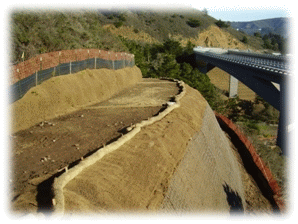 Erosion controls that aren’t maintained can cause excessive amounts of sediment and debris to be carried into the stormwater system. Stormwater can be diverted away from the construction site, while silt fences and other erosion controls can be put in place to minimize the amount of sediment that gets into the water. Also, soil erosion can be prevented by minimizing the disturbed area during construction projects, and by placing seed and mulch on bare areas as early as possible.
Construction vehicles can leak fuel, oil and other harmful fluids that can be picked up by stormwater and deposited into local waterbodies. Make sure to clean up spills immediately and properly dispose of cleanup materials.
The EPA has a wonderful poster available that outlines best management practices that you can implement on your next construction project.
Erosion controls that aren’t maintained can cause excessive amounts of sediment and debris to be carried into the stormwater system. Stormwater can be diverted away from the construction site, while silt fences and other erosion controls can be put in place to minimize the amount of sediment that gets into the water. Also, soil erosion can be prevented by minimizing the disturbed area during construction projects, and by placing seed and mulch on bare areas as early as possible.
Construction vehicles can leak fuel, oil and other harmful fluids that can be picked up by stormwater and deposited into local waterbodies. Make sure to clean up spills immediately and properly dispose of cleanup materials.
The EPA has a wonderful poster available that outlines best management practices that you can implement on your next construction project.

Lack of vegetation on creekbanks can lead to erosion. Overgrazed pastures can also contribute excessive amounts of sediment to local waterbodies. Excessive fertilizers and pesticides can poison aquatic animals and lead to destructive algae blooms. Livestock in streams can contaminate waterways with bacteria, making them unsafe for human contact.
- Keep livestock away from streambanks and provide a water source away from waterbodies.
- Store and apply manure away from waterbodies and in accordance with a nutrient management plan.
- Vegetate riparian areas along waterways.
- Rotate animal grazing to prevent soil erosion in fields.
 Please report any chemical spills to the city immediately. We can send in a team to minimize the damage to the environment.
Please report any chemical spills to the city immediately. We can send in a team to minimize the damage to the environment.- Paint and paint thinners should not be washed out at your home, where they can potentially drain into the creeks. Bring empty and dry paint cans and brushes to the Ukiah Valley Transfer Station for proper disposal.
How You Can Help
Helping your local waterways comes in many different forms, and we here at the city have provided easy, free outlets for you to do your part. Click below for the Hazmobile schedule, to learn about proper disposal of household toxic wastes.
Also, if you notice any illicit discharges or illegal dumping, please do your part as a friendly citizen and call the neighborhood hotline below, or e-mail us.
HAZMOBILE – www.mendorecycle.org
CALL LINE – To report illegal dumping into gutters or storm drains, please call: 707-463-6288
If Stormwater Polution Remains Unchecked
From the EPA’s After the Storm: A Citizen’s Guide to Understanding Storm Water. Read the whole document here
Polluted storm water runoff can have many adverse effects on plants, fish, animals, and people.
- Sediment can cloud the water and make it difficult or impossible for aquatic plants to grow. Sediment can also destroy aquatic habitats.
- Excess nutrients can cause algae blooms. When algae die, they sink to the bottom and decompose in a process that removes oxygen from the water. Fish and other aquatic organisms can’t exist in water with low dissolved oxygen levels.
- Bacteria and other pathogens can wash into swimming areas and create health hazards, often making beach closures necessary.
- Debris – plastic bags, six-pack rings, bottles, and cigarette butts – washed into water bodies can choke, suffocate, or disable aquatic life like ducks, fish, turtles and birds.
- Household hazardous wastes like insecticides, pesticides, paint, solvents, used motor oil, and other auto fluids can poison aquatic life. Land animals and people can become sick or die from eating diseased fish and shellfish or ingesting polluted water.
- Polluted storm Water often affects drinking water sources. This, in turn, can affect human health and increase drinking water treatment costs.


